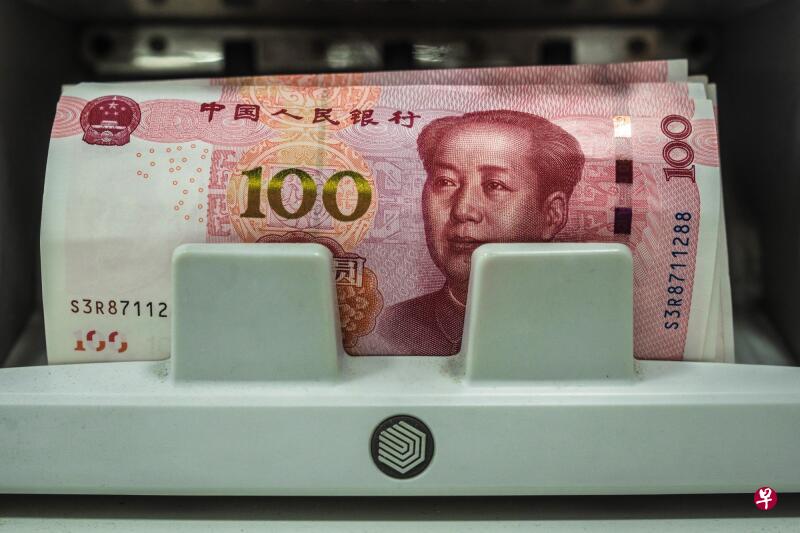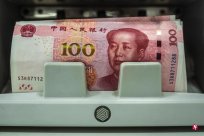
The exchange rate of the shore to the US dollar fell to 7.3159 yuan on Tuesday morning, a new low of the market since December 2007.However, in the afternoon, China was reported that China ’s research was gradually withdrawing from the“ dynamic clearance ”, which led the Lukang stock market and the RMB exchange rate to a strong rebound.
The RMB exchange rate on Tuesday (November 1) experienced a "roller coaster". After falling to a new low in nearly 15 years, the rumors that China might relax the control of the epidemic rebounded significantly.The analysis pointed out that the current RMB individual risk is greater than the pressure brought by the appreciation of the dollar, and it may further depreciate in the short term.
The exchange rate of the RMB against the US dollar fell to 7.3159 yuan on Tuesday morning, a new low of the market since December 2007.However, in the afternoon, China was reported that China ’s research was gradually withdrawing from the“ dynamic clearance ”, which led the Lukang stock market and the RMB exchange rate to a strong rebound.
The official closing price of the RMB against the US dollar on Tuesday was 7.2719 yuan, and the offshore RMB against the US dollar rose 0.59 % to 7.2935 yuan.
Xie Dongming, director of the Research Director of the Greater China of Singapore Overseas Chinese Bank, pointed out in an interview with Lianhe Zaobao that the pressure of the depreciation of the renminbi was mainly appreciated from the US dollar.However, after the closing of the 20th National Congress of the Communist Party of China, the exchange rate of the RMB on a basket of currencies also began to slip. The CFETS RMB exchange rate index measured this indicator fell below 100 since last week, showing that the risk of individual RMB has continued to rise.
The China Banking Regulatory Commission: Every 30 years see the degradation of the RMB
Xie Dongming said: "Behind the rising risk of individual renminbi is the market's concerns about the Chinese economy, especially the zero -zero policy. The rumors of Tuesday have driven the RMB exchange rate to rise and further highlight the impact of the confidence of investors' confidence in epidemic prevention policies."
The Bank of China last week for three consecutive days, and stabilized the market through a large -scale RMB reverse repurchase operation.The CBRC also shouted to market confidence, emphasizing that the trend of China's economy for a long time will not change. "In the past 30 years, all companies and individuals who degrade RMB have suffered a loss."
The central price announced in the early morning on Tuesday was weakened to 7.2081 yuan, the lowest in January 2008.As the intermediate price of the RMB exchange rate is issued by the central bank authorized Foreign Exchange Trading Center, the analysis believes that this implies that the central bank has increased to the further depreciation of the RMB.
Xie Dongming pointed out that the yuan also experienced two sharp depreciations in 2015 and 2018, but at that time, China's interest rates were still higher than the United States, and the central bank could suppress depreciation through counter -cycle measures.Nowadays, China's interest rate is much lower than the United States, and the spread is still expanding, which has diluted the effectiveness of counter -cyclical measures.If the spread cannot be alleviated in the short term, and the market sentiment will fall, the RMB exchange rate will be under pressure again.
Guan Tao, the former director of the International Division of the State Administration of Foreign Exchange, believes that the current fluctuations in the RMB are still within the tolerance. If the excessive fluctuation of the exchange rate affects the stability of financial and stable prices, the Central Bank of China has enough power to interfere with the foreign exchange market.
Guan Tao, who is currently the chief economist of BOC Securities, pointed out to Bloomberg that the Chinese foreign exchange market is generally smooth and orderly, and there is no panic to snap up and hoard foreign exchange.In addition, the fluctuation of the RMB exchange rate has no major impact on China's prices. Unlike the euro zone and Japan's input inflation pressure for the increase in the price of commodity prices in the euro zone and Japan.
Guan Tao said that if necessary in the future, China will not rule out intervention with foreign exchange reserves."As for what circumstances, the central bank will take the shot directly, and the speculators think, because the central bank does not need to show all the cards to the speculators."



